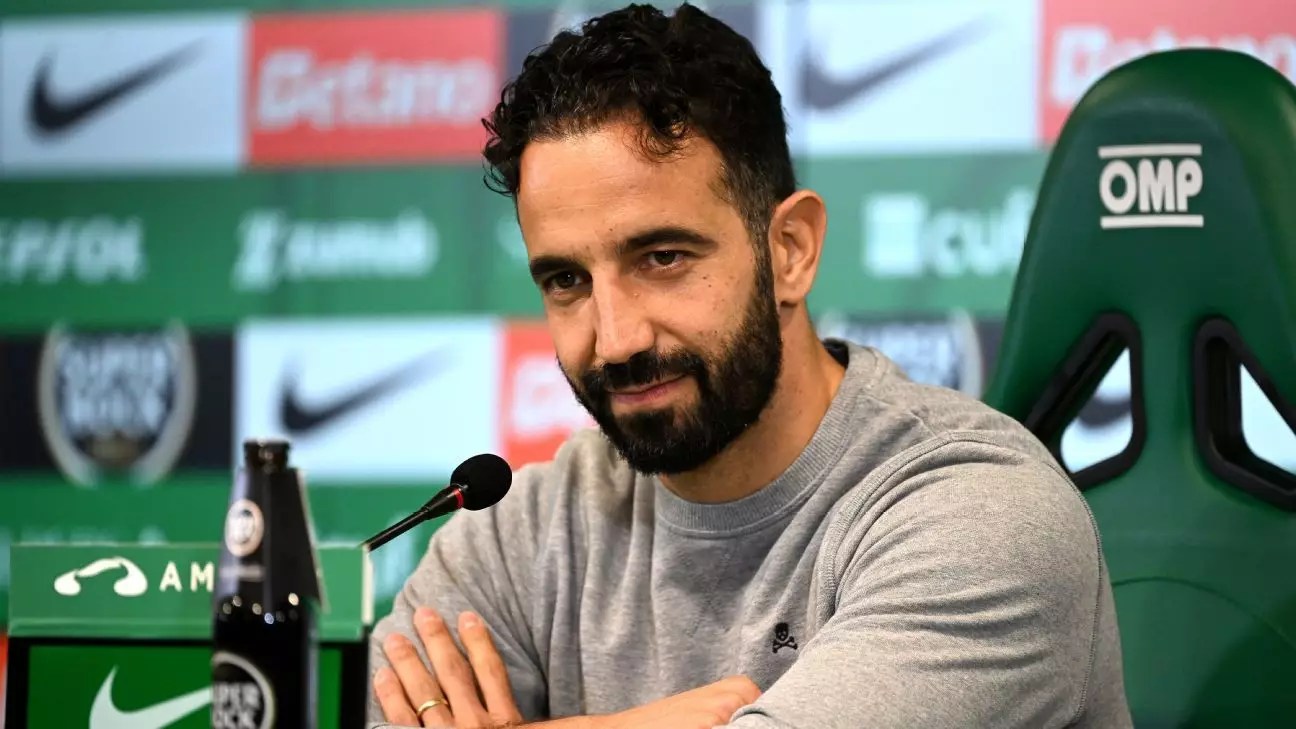Rúben Amorim’s recent transfer from Sporting CP to Manchester United has prompted widespread discussion, particularly regarding the timing of his move. The 39-year-old coach disclosed that he had initially wished to remain with Sporting until the end of the current season. However, Manchester United’s ultimatum—“now or never”—compelled him to make a hurried decision that he characterized as life-altering. With the club confirming the transfer fee at €11 million, many fans and analysts are left pondering the implications of such a rapid shift during a season that has started positively for Sporting, with 10 consecutive wins.
Amorim acknowledged the internal conflict he faced. Despite being tempted by the allure of a high-profile role in the Premier League, he felt a strong obligation to stay with Sporting, where he had built a solid rapport with players and fans alike. His decision underscores a crucial aspect of coaching: the balance between professional ambition and personal loyalty. It raises intriguing questions about how coaches navigate these dual responsibilities in an era where transient careers can be both a blessing and a curse.
Having won two league titles with Sporting since joining in 2020, Amorim leaves behind a legacy that will not be easily forgotten. He indicated that his departure was already on his mind, a point he discussed with Sporting’s president earlier in the season, outlining that it would be his last. This foresight adds a layer of complexity to his transition; he did not enter the Manchester United negotiations lightly. Rather, it appears that he has been contemplating his future for some time.
As he prepares to lead Sporting in key upcoming matches against top-tier teams, Amorim’s commitment to performing until the transition solidifies is commendable. His decision to stay on until November 11 speaks volumes about his dedication to the club’s aims, even as his future lies elsewhere. This situation invites a deeper exploration of loyalty within the sports community and the importance of leaving a legacy behind.
Amorim’s appointment at Manchester United signals a significant step in his managerial journey, particularly given the context of Manchester’s turbulent past few seasons. The pressure to deliver results will be immense, and fans will expect swift improvements given the club’s illustrious history. Amorim’s choice to bring along his own staff suggests a calculated approach to imposing his vision and tactical acumen on the team from the outset.
Interestingly, despite having attracted previous interest from other Premier League outfits such as Liverpool and West Ham, Amorim’s decision to join Manchester United was driven by the position’s perceived potential. He noted that he had reached a juncture in his life where a decisive leap had to be made. This prevailing sentiment isn’t merely resignation to circumstance but instead may indicate his readiness to rise to a new challenge, particularly in an environment where success is deeply revered and failures are scrutinized intensely.
Amorim’s acknowledgment of Sporting’s supporters hints at the emotional toll of his departure. With fans still buoyed by a strong start to the season, his exit feels abrupt to many. He expressed genuine empathy for those expectations and reiterated the importance of his relationship with the club. These comments illuminate the broader phenomenon of player and coach movements in football, where the passion of the fan base can sometimes clash with the ambition of individuals seeking to scale new heights.
Looking ahead, Amorim has a steep ascent awaiting him at Old Trafford, commencing with a Premier League match against Ipswich Town. His chosen path reflects a common narrative in football; once a coach commits to a particular direction, they often find themselves navigating the complex dynamics of new environments, team cultures, and evolving expectations.
As Amorim begins this new chapter, his journey from Sporting CP to Manchester United stands as a testament to transformative career decisions. Balancing ambition, loyalty, and recognition, it encapsulates the challenges and triumphs that define managerial careers in modern football. Only time will reveal the ultimate impact of his decision, but for now, the focus remains on the immediate tasks at hand, both for Amorim and the clubs he represents.


Leave a Reply